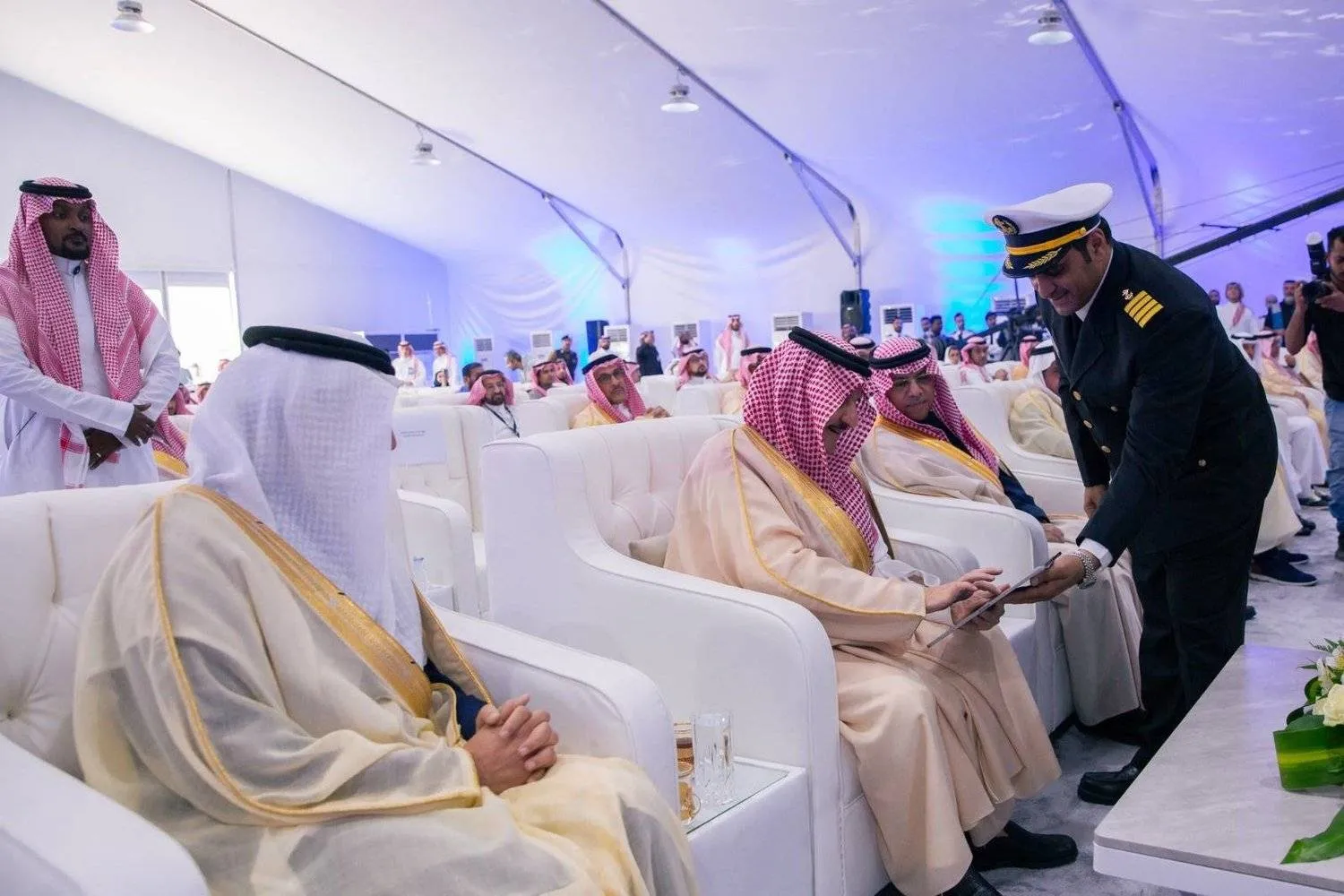Saudi Ports Authority (Mawani) signed on Sunday four contracts to provide maritime services with private sector investments exceeding SR1 billion ($266 million).
The Authority announced that these contracts were signed with Zamil Offshore Services Co. and Naghi Marine Co. for eight ports in collaboration with the Ministry of Transport and Logistics Services and the National Center for Privatization.
The deals were signed under the patronage of the Prince of Eastern Province, Saud bin Nayef bin Abdulaziz, and in the presence of Minister of Transport and Chairman of the Saudi Ports Authority Saleh al-Jasser.
The Prince of the Eastern Province emphasized that the government of the Custodian of the Two Holy Mosques, King Salman, under the supervision of Crown Prince Mohammed bin Salman, is keen on supporting projects that make Saudi ports attractive to trade and occupy a leading global position in line with the objectives of the national transport and logistics strategy.
It provides a strong network of ports and offers efficient and highly competent integrated logistics services following the best global practices.
Further, it contributes to motivating the logistics services industry, meeting the Kingdom's economic growth plans, and achieving the targets of Vision 2030.
- Operational efficiency
The Minister explained that the contracts will expand the partnership with the private sector, support the competitive capabilities of the logistics sector and Saudi ports, and enhance the operational efficiency and performance of Saudi maritime services in ports.
He noted that they would also renew the fleet of operational assets and maritime units through investment in 44 new naval units, contributing to supply chain support and economic growth.
Jasser confirmed that these contracts also aim to empower the private sector in transportation and logistics projects and initiatives, as the private sector's participation in the industry through privatization projects during the first half of 2023 exceeded SR17 billion.
He added that the transportation and logistics system will continue to increase investment opportunities with all components of the private sector and enhance the contribution of local content in system projects.
- International indicators
For his part, President of the Saudi Ports Authority Omar Hariri pointed out that these contracts aim to enhance the regional and global competitiveness of the Kingdom by utilizing the potential of the ports in value-added investment projects.
He also highlighted the role of maritime services contracts in empowering the maritime transport sector, diversifying the Kingdom's economy, developing logistic services, and raising the Kingdom's classification in international performance indicators.
In turn, CEO of the National Center for Privatization Mohanad Basudan said that signing contracts for the privatization of marine services in eight ports results from integrated and distinguished work among the privatization system team.
Busadan explained that it is evidence of high harmony, interconnection, and continuous interaction between the transportation and logistics services system and the privatization system.
He added: "We are currently working on presenting 200 vital projects, which in turn will contribute to improving the quality of the services provided and the operational efficiency of government assets."
- Marine services
The contracts aim to add 27 new tugboats and 17 new maritime pieces, attract new shipping lines, and promote the ports sector according to the highest international standards.
It also includes improving one of the most critical performance indicators: the time of assistance operations for towing by 45% across the eight ports.
Also, the contracts aim, under the supervision of the Privatization Supervisory Committee in the Transport and Logistics Sector, to enable the Saudi marine sector to achieve advanced positions in global rankings and indicators by providing a range of essential maritime services such as towing and guidance operations.
The marine services contracts are distributed among eight ports, where Zamil Marine Services Company is responsible for providing maritime services at the Jeddah Islamic Port, the Jazan Port, the Ras al-Khair Port, the King Fahd Industrial Port in Jubail, and the Jubail Commercial Port.
Naghi Marine Co. provides marine services at King Abdulaziz Port in Dammam, Yanbu Commercial Port, and King Fahd Industrial Port in Yanbu.









